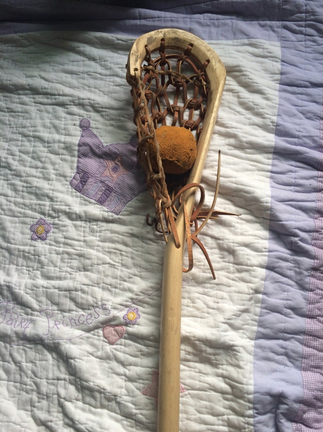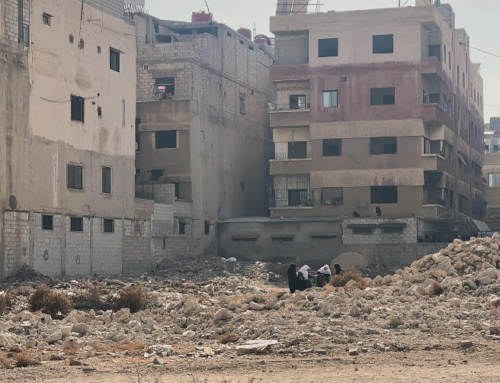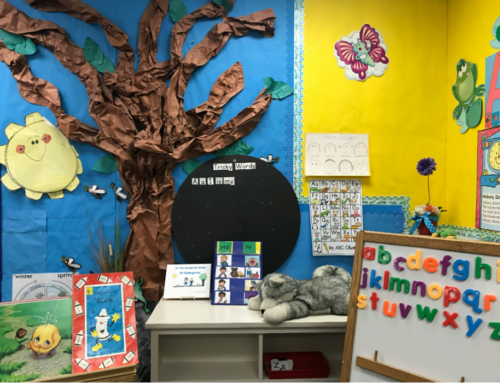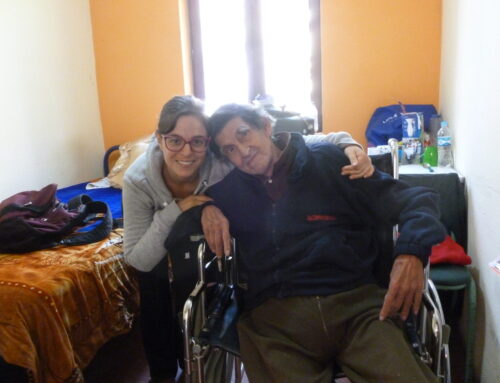When a young person is sick, their parents are typically asked to consent to treatment on their behalf. But what is it that parents are actually consenting to when they consent to a plan of care? Of course, they are consenting to the particular medication or intervention itself. But consent runs deeper than this. When a parent consents to treatment on behalf of a medically fragile child, they are also consenting to or endorsing the theory of medical knowledge on which the treatment rests – they are trusting the doctor, their training, and the scientific process that has produced the intervention being suggested. Deeper still, consenting to treatment entails endorsement of a particular vision of childhood – a constellation of beliefs about healthy bodies, good parenting, and childhood flourishing, towards which the proposed intervention ideally makes progress. When a parent consents to treatment, then, they are consenting to more than just to the intervention being offered. They are also endorsing the medical epistemology on which the treatment rests and the vision of the good life that a successful intervention may enable.
In many cases, perhaps most, this process proceeds smoothly. Families and health care teams share core underlying beliefs about medicine, childhood, and the body and so informed consent appears to be a simple process of delivering relevant information and saying yes to this or that intervention. It is only when a parent says “no,” refuses to give consent, or revokes consent previously given (or presumed) that the full scope of what is being consented to or, in these cases, refused begins to come into view.
As a newly minted PhD specializing in the ethics of childhood, this is my area of interest and bourgeoning expertise. I study situations in which young people or families attempt to resist or refuse forms of biomedical treatment. This can be for a range of cultural, religious, and political reasons. Two familiar examples may be Jehovah’s witness refusal of blood transfusion (DeMichelis 2017), or parents who incompletely vaccinate their children (Sobo 2016). But in the multicultural cities and urban hospitals of North America where my fieldwork takes place, new and challenging cases present almost daily in which a family’s beliefs about health, wellness, and the body conflict with biomedical recommendations for care.
When considering biomedical refusal, it is tempting to jump straight to the question: “Why is this family refusing treatment x?” This question is important, but it is perhaps not the first one that needs answering. A prior, but less frequently asked question is: “What precisely is this family refusing?” To get traction on this question, I propose backing up still further to ask: “What is it that parents are consenting to, when they say “yes” to treatment?” And so that is where my reflection begins.
I ask these questions with a particular family in mind, a family with whom I have worked off and on over the course of the past four years. The family is Mohawk, Turtle Clan, and they live on a Haudenosaunee reserve in southern Ontario. When one of the family’s twelve children, eleven-year-old Lyra1, was diagnosed with Acute Lymphoblastic Leukemia, her mother Kahontsi:io consented to begin chemotherapy on her behalf. But from the beginning this was an uneasy consent. As one of Lyra’s oncologists, Dr. Harris, tells me:
“One of the things that Kahontsi:io struggled with and said from the beginning is that Western medicine was not the paradigm that their family usually followed. So we worked with the whole family to get to the point that, I think, at the time, they felt comfortable with the decisions they were making [to begin chemotherapy]. But she did always have a little bit of, like “I would have never thought I would have made this decision.”
Though she brought Lyra to a hospital for care and accepted the diagnosis of cancer, Kahontsi:io was then and is today deeply committed to the use of Haudenosaunee healing practices. She had serious reservations about whether chemotherapy was the best method to restore her daughter to health and wellbeing. In addition, Kahontsi:io remains deeply mistrustful of state institutions – particularly medical institutions, which have been sites of colonial violence in Canada for hundreds of years (Allan & Smylie 2015; Stote 2012). Consenting to chemotherapy, then, was about much more than saying yes to the treatment being proposed. It entailed the endorsement of a system of medical belief that was not only unfamiliar, but also had been forcibly imposed on her people as part of a colonial politics of assimilation, dispossession, and erasure (Wolf 2006; Tuck and Yang 2012; DeMichelis 2018).
Kahontsi:io consented to begin chemotherapy but it was an uneasy consent. As Lyra’s treatment progressed, Kahontsi:io sought support in developing a more holistic plan of care for her daughter. She requested permission to bring in medicines prepared by healers, and to conduct ceremonies in the hospital attended by healing societies. When the hospital refused or in other ways worked to resist these efforts, the therapeutic relationship between the family and the hospital rapidly deteriorated. Ten days into Lyra’s treatment, Kahontsi:io withdrew her consent to chemotherapy all together.
Anthropologists who theorize refusal point out that refusing something is not merely about saying “no;” refusal can also be a way of saying yes ¬– about insisting on other ways of being. As Carole McGranahan writes “to refuse can be generative and strategic, a deliberate move toward one thing, belief, practice, or community and away from another… refusal marks the point of a limit having been reached: we refuse to continue on this way”(2016, 319-320). This “generative” dimension of refusal is clear in Lyra’s case. Kahontsi:io’s refusal was not a refusal of chemotherapy all together, but was instead a refusal to carry on without the healing traditions that she saw as essential to her daughter’s recovery. Kahontsi:io explained:
“At that point I needed to lay faith in our medicine and our beliefs. It wasn’t just the physical plant medicine she was drinking, there was other spiritual help that I really truly truly believe in. And I know Lyra believes in it too. Like, we all do. So we were laying our faith in help from the spirit realm and help from the medicines and gathering up all the strength we had… But I told the doc the whole time I wanted her to be continually assessed by physicians. I told them, “If you tell me my daughter needed to come back, I will come back.” I said, “This isn’t a complete refusal of your treatment.”
Thus, Kahontsi:io’s refusal of chemotherapy – or more precisely her decision to withdraw her previously given consent – was an intertwined act of refusal and insistence. Her refusal was not of chemotherapy all together. Instead she was articulating a limit. She could not continue to consent to a biomedical epistemology that would not incorporate Haudenosaunee ways of knowing. Kahontsi:io’s decision is deeply resonant with other forms of Indigenous political refusal, theorized by Mohawk anthropologist Audra Simpson as: “the very deliberate, willful, intentional actions that people [make] in the face of the expectation that they consent to their own elimination as a people, that they consent to having their land taken, their lives controlled, and their stories told for them.” (2016: 327-328) To understand what is being refused, we need to ask the prior question: “To what were you being asked to consent?”

Lyra’s lacrosse stick, used by her family and community in games of medicine lacrosse during her illness. Photograph by Lyra
Over the tumultuous year that followed, many people became entangled in Lyra’s care. There was a child welfare investigation, threats of state apprehension, a cross-border flight, allegations of abduction and abuse, outcry in the press, and a precedent-setting legal battle. At the end of it all, a judge determined that Kahontsi:io had a constitutionally protected right to use Haudenosaunee healing practices. The family found an oncologist who was willing to partner with their primary healer and they set to work implementing the hybrid healthcare plan they had proposed from the beginning. Today Lyra is sixteen-years-old and her cancer is in permanent remission.
Audra Simpson begins her book Mohawk Interruptus with a meditation on the meaning of Indigenous refusal in settler states. She writes:
“What does it mean to refuse a passport – what some consider to be a gift or a right, the freedom of mobility and residency? What does it mean to say no to these things, or to wait until your terms have been met for agreement, for a reversal of recognition or a conferral of rights? What happens when we refuse what all (presumably) “sensible” people perceive as good things?” (2014, 1)
Simpson argues that, when these acts of refusal are plotted within a landscape of historical and contemporary colonial violence, the “gifts” and “rights” of the state emerge in a new light – as techniques of colonial assimilation, erasure, or rejection, against which the self determination of Indigenous nations must be consistently and continuously asserted.
Following Simpson, in Lyra’s case we might ask: what does it mean to refuse chemotherapy? To refuse the free and high-quality biomedical health care that is a marker of Canadian national identity and pride? What happens when Lyra’s family, not only contests biomedical authority, but also, crucially, asserts instead another vision of Lyra’s wellbeing ¬– one that is grounded in Haudenosaunee ways of knowing? Because settler ideals of “good health” and “good parenting” have been forcibly imposed on Indigenous bodies and families for hundreds of years, the provision of chemotherapy in Lyra’s case cannot be seen as an uncomplicated or obvious good.
As a postdoctoral researcher, employed by a center for biomedical ethics at a large university medical center, one of my aims is to complicate the way bioethicists and healthcare providers think about consent. The ethically difficult bit is not just (“just”) ensuring that consent is informed and uncoerced. It is also about understanding the full range of normative and political commitments that underpin consent to a particular treatment plan. By troubling our understandings of consent, I hope to open up new space to understand what is at stake in childhood biomedical refusal.
Notes:
[1] Pseudonyms are used throughout.
Acknowledgements:
I would like to thank all of my participants but, particularly, “Lyra” and “Kahontsi:io” for their partnership in this project. Helpful feedback on this essay was provided by Kahontsi:io, Simon Lambek, Sophie Rohr, Michael Lambek, Jackie Solway and Carole McGranahan.
References:
Allan, Billie, and Smylie, Janet. 2015. First Peoples, Second Class Treatment: The Role of Racism in the Health and Well-Being of Indigenous Peoples in Canada. Toronto: The Wellesley Institute.
DeMichelis, Carey. 2017. “Transfusion refusal and the shifting limits of multicultural accommodation.” Qualitative Health Research, 27(14), 2150-2161.
DeMichelis, Carey. 2018. “The Best Interests Standard as a Logic of Empire: Unpacking the Political Dimensions of Parental Refusal.” The American Journal of Bioethics, 18(8), 83-85.
McGranahan, Carole. 2016. “Theorizing Refusal: An Introduction.” Cultural Anthropology, 31(3), 319-325.
Simpson, Audra. 2014. Mohawk Interruptus: Political Life Across the Borders of Settler States. Duke University Press.
Simpson, Audra. 2016. “Consent’s Revenge.” Cultural Anthropology, 31(3), 326-333.
Stote, Karen. 2012. “The Coercive Sterilization of Aboriginal Women in Canada.” American Indian Culture and Research Journal, 36(3), 117-150.
Sobo, Elise. 2016. “Theorizing (Vaccine) Refusal: Through the Looking Glass.” Cultural Anthropology, 31(3), 342-350.
Tuck, Eve, and Yang, K. Wayne. 2012. “Decolonization is Not a Metaphor.” Decolonization: Indigeneity, Education & Society, 1(1).
Wolfe, Patrick. 2006. “Settler Colonialism and the Elimination of the Native.” Journal of Genocide Research, 8(4), 387-409.
Cite as: DeMichelis, Carey. 2020. “Troubling Consent and Theorizing Refusal in Pediatric Medicine.” American Ethnologist website, May 13 2020. [https://americanethnologist.org/features/reflections/troubling-consent-and-theorizing-refusal-in-pediatric-medicine]
Carey DeMichelis is a Postdoctoral Research Fellow at Vanderbilt’s Center for Biomedical Ethics and Society. Her PhD was granted in 2019 by the Joint Centre for Bioethics and the Department of Human Development at the University of Toronto. Contact: carey.r.demichelis[at]vanderbilt.edu




